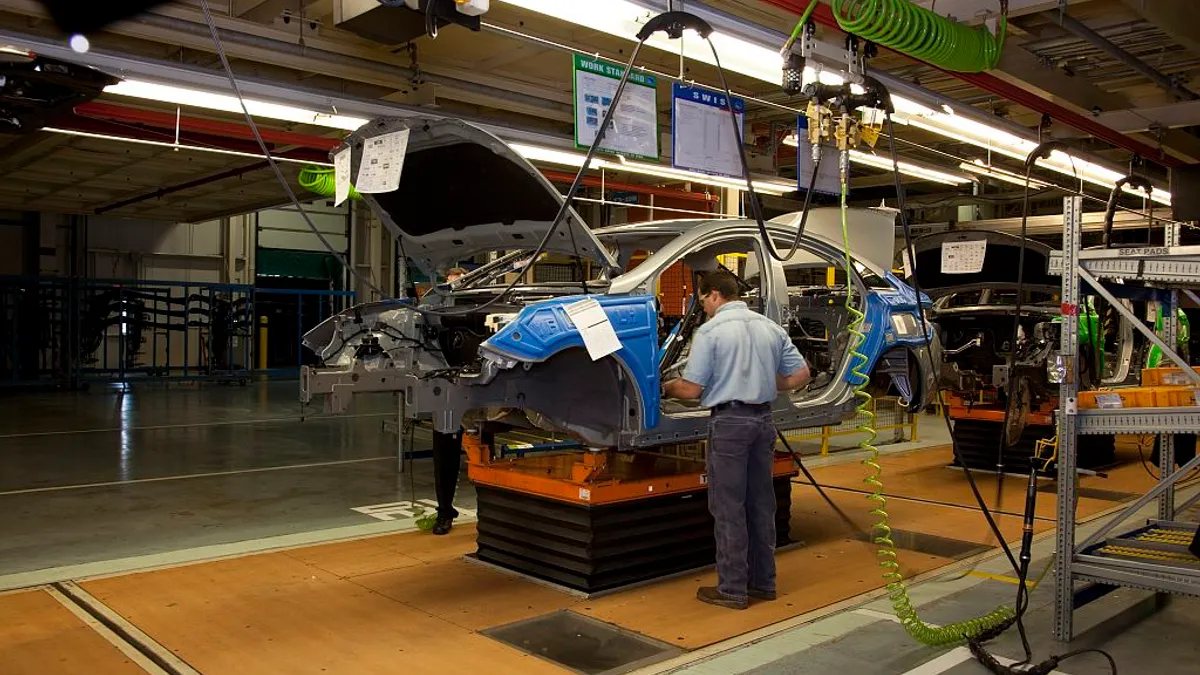Dive Brief:
- A new study by Pearson, Nesta and Oxford University found that 40% to 60% of workers are in declining jobs, while the skill sets of workers in surviving occupations will likely need re-engineering. According to Pearson, production of the joint report, The Future of Skills: Employment in 2030, drew on both human expertise and machine learning components.
- The study also found that: one in 10 workers are in growing occupations; seven in 10 workers are in uncertain jobs, but can be prepared for the future; and interpersonal skills like teaching, customer service, persuasion and social perceptiveness are in demand.
- Study results show that the effective use of technology, along with human skills, will drive productivity. Additionally, Pearson said technology will supplement education rather than supplant it, and employers will need to proactively redesign jobs that are the most at risk for extinction.
Dive Insight:
Employers and workers may be anticipating a greater overhaul in jobs through automation or attrition than what might actually occur. Currently, they only have speculation and predictions to go on.
Employment experts with insight into future workplace demands, job sustainability and automation predict that although some jobs are declining or will be supplanted by automation, jobs that remain will likely require a skills upgrade, and new jobs that emerge will require training. However, a recent Korn Ferry study shows that only 27% of employers are capable of re-skilling workers for future jobs.
Employers that don't invest in re-skilling workers stand to increase the skills gap. Employers might have to look at hiring workers from diverse backgrounds, including employees with disabilities, older workers and those who require more flexibility in handling personal responsibilities.











![Salesforce AI's CEO sits onstage across from Cristina Criddle. Screens that say Human[X] hang behind them.](https://imgproxy.divecdn.com/4XVfO8mNsslv7_axsVip9IU74iKpLWgiY3616VXH4ow/g:nowe:0:104/c:1024:578/rs:fill:600:338:1/Z3M6Ly9kaXZlc2l0ZS1zdG9yYWdlL2RpdmVpbWFnZS9HZXR0eUltYWdlcy0yMjA0NjUxNDM0LmpwZw==.webp)
